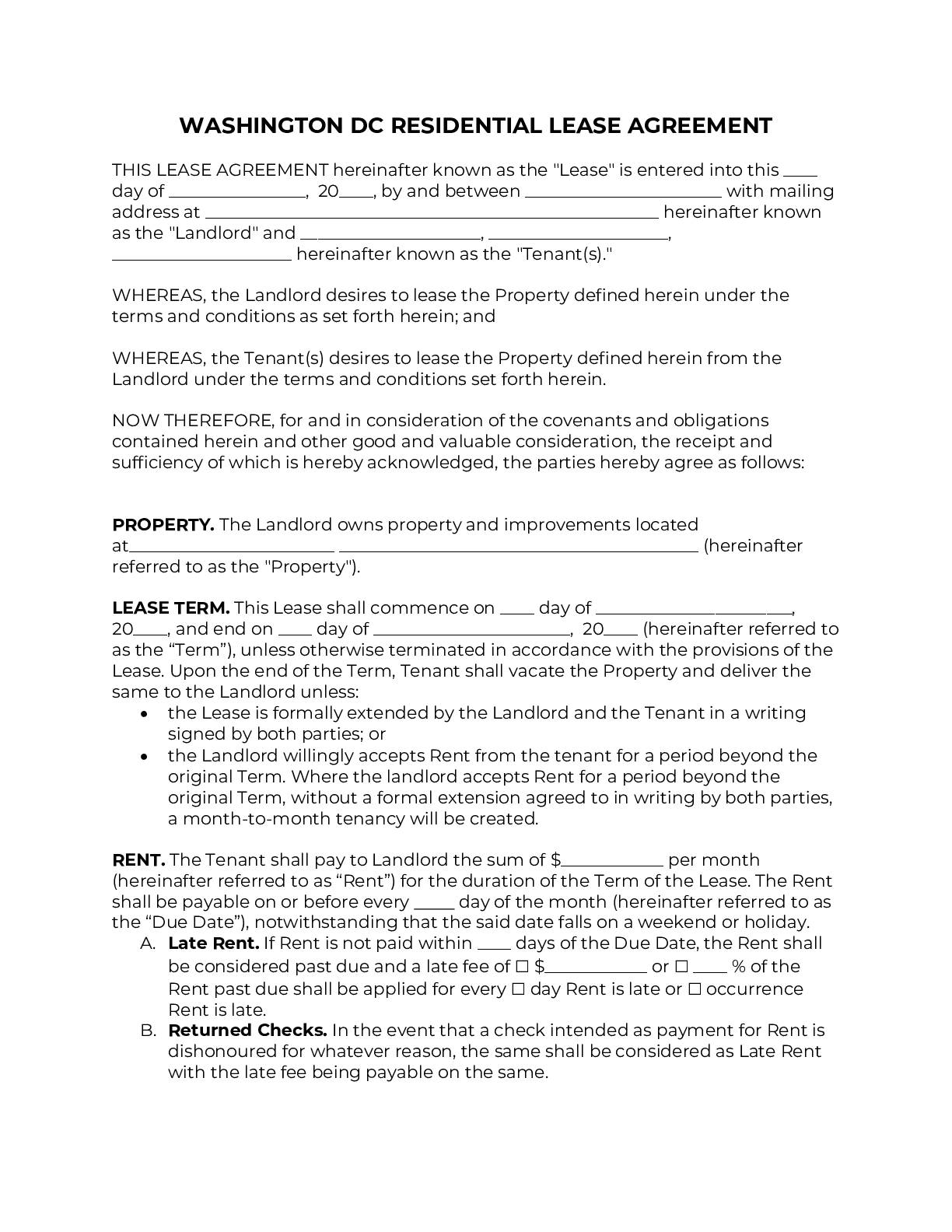Renting a flat in the vibrant, historic city of dc lease agreement pdf. can appear overwhelming. Whether you're a newcomer or an original resident, navigating the city's unique rental laws and lease agreements may be daunting. As a renter, it's crucial to truly have a comprehensive knowledge of the legal document that governs your rental period — your lease.
Know Your Rights and Responsibilities
The District of Columbia has specific regulations that offer substantial rights to tenants. Understanding these is the first step in protecting yourself and ensuring an easy rental experience.

Discrimination and Fair Housing
It's paramount to keep yourself informed of fair housing laws, which prohibit landlords from discriminating against tenants predicated on race, color, religion, sex, national origin, age, disability, and familial status. As a D.C. resident, you've the best to equal treatment in most housing-related activities, including rent, deposits, and lease agreement terms.
The Rental Application and the Security Deposit
When applying for a rental, landlords may charge a software fee that cannot exceed $25. Be sure to receive a receipt because of this fee. Additionally, D.C. law restricts the security deposit to an amount equivalent to one month's rent. The landlord must provide reveal receipt upon receipt of the deposit and return it with accrued interest within 45 days of your lease's expiration date.
Understanding Your Lease
Your lease is just a binding contract. It sets out the terms of one's rental, including the rent amount, payment schedule, and the duration of your tenancy.
Forms of Leases
The two most frequent kinds of leases in Washington D.C. are fixed-term leases, which run for a specific period, and month-to-month leases, which automatically renew unless terminated by the landlord or tenant with proper notice.
Essential Lease Terms to Look For
Ensure your lease covers crucial information such as:
Rent deadline and any late fees
Duration of the lease
Procedures for renewing or terminating the lease
The landlord's obligations for repairs and maintenance
Rules for subletting or assignment
Whether pets are allowed and any associated fees
It is critical to examine these terms carefully before signing, requesting clarifications or negotiating changes if necessary.
Exercising Your Rights
Armed with understanding of your rights and responsibilities, you are able to confidently advocate for fair treatment. If any issues arise with your lease, the landlord, or the property, there are several steps you are able to take to address them.
Document Everything
Keep a record of all communication together with your landlord or property manager, such as the date, time, and nature of the conversation. If you want to file a problem, having a detailed record will strengthen your case.
Seek Legal Advice
The D.C. Tenant Survival Guide provides invaluable information, but also for specific legal advice, it's better to consult a qualified attorney, especially when you're facing eviction or a serious lease dispute.

Know Where to Turn
The D.C. Department of Consumer and Regulatory Affairs and the D.C. Office of the Tenant Advocate can offer guidance and resources for renters.
In summary, understanding your lease and the regulations that govern it will empower you as a renter in Washington D.C. Take the time to read and comprehend your lease agreement thoroughly. Should any issues arise, action your rights confidently and knowledge. Remember, what's in some recoverable format is what's expected; ensure it reflects your expectations and protects your interests as a tenant in the nation's capital.
